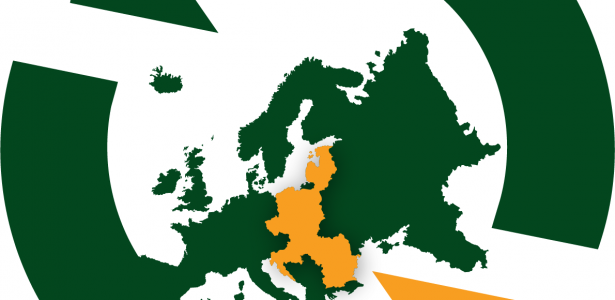Five years ago, the Visegrad Four launched the BIOEAST Initiative, which aims to develop a knowledge-based agricultural economy in a sustainable biomass-based economy.
Eleven countries from the Baltic to the Balkans are now members of the Initiative. The ministers of the 11 countries have adopted a joint declaration on the need to support the Initiative, to strengthen the use of biomass for food and non-food purposes and to promote the creation of local added value.
The main objective of the BIOEAST Initiative is to develop research and innovation potential related to bioeconomy, including enhancing the research capacity of the agri-food economy. To accomplish this, it is essential that we maximise our share of the EU’s Framework Programme for Research and Innovation, the Horizon Europe, which earmarks €9 billion over the next seven years to support sustainable biomass research and development. Unfortunately, the proportion of the Central and Eastern European member states within the EU research resources has been around 5.7% in the recent period.
The BIOEAST Initiative assists the Ministries of the Member State on a daily basis in developing policies and providing information to domestic applicants. Now it is also clear that the EU institutions recognise this cooperation and consider it useful, because it provides them with information and opinions theyotherwise have lacked, or find it difficult to channel the needs of the micro-region explicitly.
Minister István Nagy stressed in his welcome speech that “I am convinced that biomass will play a key role in making agriculture sustainable, since the use of agricultural, forest-based and water-based biomass produced today could make a major contribution to achieving climate goals and, ultimately sustainability. The use of produced biomass has been addressed in almost all the strategies of the European Green Deal. We cannot talk about a carbon-neutral future without sustainable production and processing of biomass.”
In the morning a technical event was held to familiarise stakeholders with the various EU loan programmes that can finance innovative biomass projectsin the region. In general, only the support programmes are known in our regions, however there exist specific banking programmes of the European Investment Bank, the European Bank for Reconstruction and Development and the special venture capital fund of the European Circular Bioeconomy Fund, which are capable of supporting research and innovation projects and the start of risky investments.
The Hungarian Visegrad Presidency, with the support of the Permanent Representation of Hungary to the EU has offered an unusual professional programme for the stakeholders from the macro-region. The webinar was attended by more than 120 participants including policymakers, banks and market players, who are planning to invest in this area.
The conclusion of the event, as demonstrated by the large number of participants is that sustainable cultivation and use of biomass could be a potential strategic field for the future. The Central and Eastern European region has a large potential, but in order to better exploit it knowledge is needed and the development of national biomass-based research and national economic programmes should be supported.
1.Baranyai-G.-Introduction-final-2021.-11.-15-masolata.pdf
2.Wydra-S.-Biobased-Innovations_Presentation_BioEast_15Nov_final.pdf
3.Vercauteren-I.-211115-Aphea.Bio-intro-to-BIOEAST.pdf
4.Akdeniz-Giachino-EBRD-Bioeast-project-cases.pdf
5.Bauer-J.Tungsram-Food-Autonomy_BioEast.pdf
6.Brzezicka-P.-BioEast-15.11.2021.pdf
7.Clara-M.-20211511_ECBF_Presentation_BioEast.pdf

